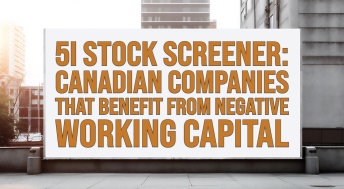If you are not paying attention — always — you are going to miss something
Several friends in the past month have, for one reason or another, asked me to describe my working day to them. I also used to get this question a lot during my time as a mutual fund manager. The investment business is really a 24/7, 365-days-a-year affair. Managers are always thinking about stocks, the economy, world events, even when they are not at the office. Everything impacts the markets. If you are not paying attention — always — you are going to miss something.
Wake Up Stupid Early
I wake up when a three is the first number on the clock. Part of the early wake-up call is a habit from my old competitive swimming days, but it is now work-related. Simply put, with access to information much easier for every investor these days, an early start is one of the only advantages an investor can get. Company news — takeovers, acquisitions, contracts — typically comes out in the mornings. Having more time to analyze this news, rather than just reacting to it 30 minutes before markets open, can give you an edge. For example, suppose a company announces a takeover and that it is accretive to earnings. With enough time, you can run your own financial models, rather than just taking a company’s word for it. Advantage: early bird.
Reading/Analyzing Company News, World Events, Commodities, Takeovers
Not all news, of course, comes out in the morning. Earnings releases tend to be before or after market, but companies can issue press releases anytime, and there are always virtual conferences and conference calls to attend. The United States Federal Reserve might make an announcement, or the Bank of Canada. The past 18 months has also required investors to become COVID-19 experts, watching virus and vaccine news like a hawk. Basically, any piece of news can move markets. Sometimes, news you think isn’t so important gets picked up by a larger crowd, and stocks and markets can move erratically. There are rumours and facts to listen to and then decide if they are important. My Bloomberg screen can put out hundreds of press releases a minute. One could spend an entire day just reading these headlines, so quick decisions and time management often become crucial habits.
Data Screening for New Stock Ideas
If I have learned one thing In my career, it is that company executives can lie, sometimes outright. At best, they are expert salespeople. At worst, they can be corrupt fraud artists. I have learned to not really rely on them. Numbers, on the other hand, particularly cash flow, are a lot harder to manipulate, so running data screens is a major part of my day. I screen for all sorts of things, but start with the new highs from the day before. This gives me some new ideas to investigate, as I need to see what all the fuss is about. But screens can be done on pretty much anything, and I like to look at return on equity, sales growth, earnings revisions and dividend increases, amongst other data points. With 10,000 stocks in North America, screens at least keep the potential investment universe manageable.
Talk to Companies/Analysts
Meeting with company executives is still important, but not for the reason many think. Generally, because corporate executives need to disclose all information to all investors, you are not going to get any juicy new information from repeated or one-on-one meetings. But it is important to meet a management team in order to get a feel for the company’s approach and long-term goals, and specifically whether you can trust them.
Managers and investors don’t need to meet with executives every quarter. Let them run the business. Many company executives, and fund managers, too, have decided these meetings are a bit of a waste of time, and prefer to let the numbers do the talking (see the prior point). I’ve been to thousands of meetings in my career, but I took fewer and fewer meetings as my career progressed, and had more time for real research rather than listening to a sales pitch. One caveat: I do like talking to the competition of a company I am researching. Competitors will tell you the flaws of the other company. Management won’t.
Marketing/Customers/Investors
One needs customers, so whether you’re a portfolio manager, analyst or someone helping do-it-yourself investors, part of any investment professional’s day is spent marketing. Current customers always have issues, enquiries need to be answered and there are always new customers to win over.
More than half of my day as a portfolio manager during the financial crisis in 2008 was spent calming investors down, whereas I would have preferred to be spending that time trying to manage an imploding investment world. But it is a necessary task. If my customers all leave, there isn’t much point focusing on the other four points above now, is there?
Take Care,







Comments
Login to post a comment.